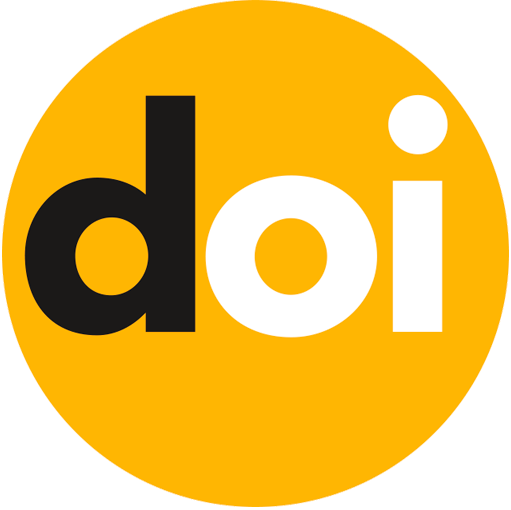O MONITORAMENTO ELETRÔNICO
LIBERDADE VIGIADA OU ESTIGMA QUE LIBERTA?
Keywords:
electronic monitoring, ankle bracelet, instrumental aimsAbstract
This paper addresses the Electronic Monitoring System as a control method and observation of convicts. The aim of this study is to evaluate the stage of the criminal policy in the past decade and the implementation of the system, in a critical and instrumental view. The methodology involved a bibliographical and documentary research, aiming to seek theoretical frameworks, as well as field experience, since the author is a Justice officer and works as a Director of Mandamus Center Executions Court Criminal of the Rio de Janeiro State Court. The field of study delimited to interviews with inmates in home prison regimen, visit to SISPEN, Patronato Magarino Torres and penitentiaries, collection of statistical data, always in order to confront the reality of the prison system fluminense with others. Finally, it analyzes the current situation, highlighting the advantages and disadvantages of using the electronic anklet. The finding indicates positive actions to be developed, whose implementation could contribute to the actual direction of the measure, pointing also to the need for commitment of all actors involved in the project.
KEYWORDS: Electronic Monitoring. Ankle bracelet. Instrumental aims.
References
AZEVEDO E SOUZA, Bernardo de. O monitoramento eletrônico como medida alternativa à prisão preventiva. Rio de Janeiro: Lumen Juris, 2014.
BARATTA, Alessandro. Criminologia Crítica e Crítica do Direito Penal: Introdução à Sociologia do Direito Penal. 3 ed. Rio de Janeiro: Revan, 2002.
BITENCOURT, Cezar Roberto. Tratado de Direito Penal: parte geral. São Paulo: Saraiva, 2011.
CARNELUTTI, Francesco. As misérias do processo penal. Campinas: Conan, 1995.
DURKHEIM, Émile. As regras do método sociológico/Émile Durkheim; tradução de Walter Solon. – São Paulo : EDIPRO, 2012.
DWORKIN, Ronald. Levando os direitos a sério. São Paulo: Martins Fontes, 2002.
FARIA, José Eduardo. Privatização de Presídios e Criminalidade: A Gestão da Violência no Capitalismo. São Paulo: Max Limonad, 2000.
FLICK, U. Introdução à metodologia de pesquisa: um guia para iniciantes. Porto Alegre: Penso.
FONSECA, André Luiz Filo-Creão. O monitoramento eletrônico e sua utilização como meio minimizador da dessocialização decorrente da prisão. Porto Alegre: Núria Fabris, 2012.
FOUCAULT, Michel. Vigiar e Punir: nascimento da prisão. Rio de Janeiro: Vozes, 2009.
FREITAS, Wagner Cinelli de Paula. Espaço urbano e criminalidade: lições da Escola de Chicago. São Paulo: IBCCRIM, 2002.
GOMES, Luis Flávio. Estudos de Direito Penal e Processo Penal. São Paulo: Revista dos Tribunais, 1999.
GRECO, Rogério. Direitos humanos, sistema prisional e alternativas à privação de liberdade. São Paulo: Saraiva, 2011.
LEAL, Carlos Barros. Vigilância eletrônica à distância: instrumento de controle e alternativa à prisão na América Latina. Curitiba: Juruá, 2011.
MORAIS, Paulo Iász de; CAIADO, Nuno (Coord.). Monitoração eletrônica, probation e paradigmas penais. São Paulo: Aclo, 2014.
ORWELL, George. 1984. 29ª edição. São Paulo : Companhia Editora Nacional, 2003.
SARLET, Info Wolfgang. Dignidade da pessoa humana e direitos fundamentais. Porto Alegre: Livraria do Advogado, 2001.
TOURINHO FILHO, Fernando da Costa. Manual de Processo Penal. São Paulo: Saraiva, 2002.
ZAFFARONI, Eugenio Raúl; PIERANGELI, José Henrique. Direito penal brasileiro: parte geral. São Paulo: Revista dos Tribunais, 2011.
Downloads
Published
How to Cite
Issue
Section
License
Authors who publish in this Journal agree to the following terms:
- Authors retain copyright and grant the Journal of Constitutional Research the right of first publication with the article simultaneously licensed under the Creative Commons - Attribution 4.0 International which allows sharing the work with recognition of the authors and its initial publication in this Journal.
- Authors are able to take on additional contracts separately, for non-exclusive distribution of the version of the paper published in this Journal (eg.: publishing in institutional repository or as a book), with a recognition of its initial publication in this Journal.
- Authors are allowed and encouraged to publish their work online (eg.: in institutional repositories or on their personal website) at any point before or during the submission process, as it can lead to productive exchanges, as well as increase the impact and the citation of the published work (see the Effect of Open Access).

















